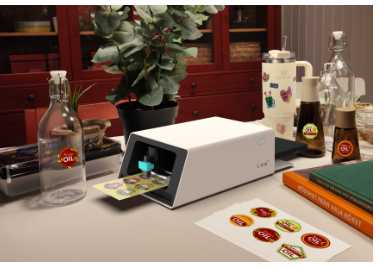Solukon has introduced that the SFP770 put up processing techniques for polymer components can now accomodate construct bins from EOS P 1 and P 5 collection SLS manufacturing techniques.
In keeping with Solukon, this may allow it to faucet new markets within the space of polymer put up processing.
Andreas Hartmann, CEO and CTO of Solukon, stated: “We’ve obtained a number of requests for a post-processing system, particularly for the EOS P 500. For the reason that EOS P 500 is a normal plastic printer, our SFP770 put up processing system paired with the right adapter is now obtainable to a a lot bigger person base.”
The method of the SFP770 begins with the construct field being positioned within the system by a elevate truck. A vibrating sieve cowl is then positioned over the field, which then rotates gently overhead following an non-obligatory programmable course of, separating the parts from the powder.
The free powder is extracted from the sieve cowl instantly and conveyed to a recycling unit or storage silo. As soon as the unpacking course of is full, the construct field rotates in the direction of the basket and opens the sieve cowl. The duvet now features as a slide and the components are slipped into the basket.
After the parts are transferred into the basket, a brand new construct field may be loaded into the system, whereas the primary batch is cleaned within the second half of the system. The cleansing course of works by the basket rotating within the path of the blasting unit, the place the automated course of involving glass bead blast and ionised air to take away residual powder.
Solukon launched the SFP770 in late 2020, presenting it as a put up processing system for plastic components manufactured by a P 7 collection EOS printer.
The corporate says it was approached by an automotive trade buyer with a request to have the ability to each unpack and clear polymer parts routinely, with out the person coming into contact with the plastic powder. That is when the SFP770 was launched.
Hartmann added: “We anticipate plastics manufacturing to pattern strongly in the direction of a give attention to post-processing, as a result of it constitutes the decisive step in figuring out if one thing is really manufactured in collection or not. You may optimise a producing course of for serial manufacturing as a lot as you need, but when the following postprocessing fails to satisfy the identical excessive requirements, you’ll not have true serial manufacturing.
“At Solukon, we subsequently anticipate to see an elevated demand for automated unpacking and cleansing stations. Thus, we’re additionally able to automate the loading and unloading steps. Discussions with worldwide producers and system suppliers are already in full swing. We’re proud to have the ability to take part in the way forward for additive manufacturing on this space.”
In October 2022, Solukon launched the SPR-Pathfinder software program for clever depowdering.
Wish to talk about? Be a part of the dialog on the TCT Additive Manufacturing Community.
Get your FREE print subscription to TCT Journal.
Exhibit on the UK’s definitive and most influential 3D printing and additive manufacturing occasion, TCT 3Sixty.


